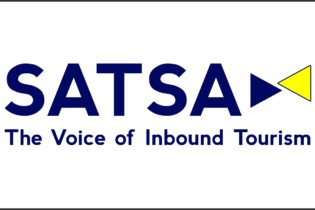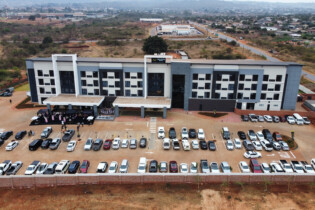As organisations strive to tighten their budgets, extracting maximum value from your travel expenditure is vital to maintaining a competitive edge. Business travel often ranks among the largest expenses for companies, making it crucial to find savvy ways to optimise this expenditure.
“By actively managing and enhancing the value of corporate travel, businesses can free up resources for other impactful initiatives,” explains Bonnie Smith, General Manager of FCM.
Here are five strategies companies can employ to maximise the value of business travel.
Providing travellers with fewer accommodation options
Research from Finances Online reveals that meals constitute the largest portion of a typical business travel budget, accounting for 21% of trip costs. While per diem allowances typically cover lunch and dinner, breakfast often adds to travellers’ expenses post-trip. Hotel breakfasts can be costly, with an average cost of £11.20 per person across 100 leading European destinations. These expenses can accumulate rapidly, especially during trips to multiple locations.
“Having negotiated contracts with fewer preferred hotel providers proves advantageous,” notes Smith. “Hotels are less inclined to offer discounts or complimentary services, such as free breakfast or room upgrades, to businesses with easily accessible alternative booking options. This diminished bargaining power results in higher nightly rates and fewer value-added benefits.”
In addition to breakfast expenses, travellers must also consider other unforeseen charges like parking, early check-in, and late checkout, which can significantly inflate the overall cost of hotel stays, particularly when booking multiple locations.
To manage meal and accommodation expenses effectively, Smith suggests that businesses leverage their bargaining power by consolidating bookings with fewer preferred hotel partners. This approach can unlock more favourable rates and value-added amenities, better controlling the major segments of the business travel budget.
Avoiding booking business travel during peak periods
Booking business travel during peak periods can substantially increase accommodation costs. High demand during popular travel times allows hotels and other lodging providers to impose premium rates. Peak tourist seasons, school holidays, and major conferences can also impact prices, while major sporting events and music tours can cause accommodation rates to soar. To contain these expenses, work closely with your travel manager or travel management company (TMC) to strategically plan trips during quieter travel periods.
This approach is critical as the hotel industry has transitioned from fixed corporate rates to dynamic pricing models. As outlined in the Q4 2023 Trend Report by FCM Consulting, there is a rising trend in North America and Europe of hotels offering corporates dynamic discounts off the Basic Available Rate (BAR) accessible to the public. This dynamic model, replacing traditional fixed rates, means corporate travellers’ rates fluctuate with hotel availability, yielding only a 10 – 20% saving. This makes accurate budgeting for accommodation much more challenging.
The key takeaway is that if a significant event, such as a Taylor Swift concert, is scheduled, it’s advisable to adjust the dates of your business trip if possible. Of course, there may be instances where travel during a specific event or meeting is necessary. However, in general, scheduling business trips during off-peak times effectively keeps accommodation costs in check.
Research also reveals that booking domestic flights two days before departure can cost an average of 19% more and 30% more for international flights. This prompts the question: how crucial is that last-minute meeting request and will it provide the ROI for the expensive ticket?
Opting for ridesharing over renting
Rideshares like Uber and Bolt have gained popularity among business travellers owing to their convenience. Travellers can hail a ride anytime, avoid parking issues, and easily charge expenses to their company through options like Uber for Business.
However, ridesharing may not always be the most budget-friendly option. Surge pricing during peak times can lead to significantly higher fares – a ride that costs R100 one time could spike to R300 an hour later. The unpredictable pricing also complicates budgeting. Airport transfers via rideshares can also be costlier, with transfers from Cape Town International averaging around R300.
In contrast, renting a car offers more cost control. Car rental and fuel constitute 16% of a typical business trip budget, compared to 3% for taxis. To manage rental car costs, businesses can negotiate rental agreements and leverage loyalty programmes for better rates.
“Overall, while ridesharing offers convenience, renting a car may be the more budget-friendly option for business travel, especially when travel managers can strategically plan trips and negotiate rental terms,” says Smith.
Avoiding booking flights online
Relying solely on online booking tools when arranging business travel can result in hidden fees that surpass initial estimates. Airlines increasingly impose “junk fees” – additional charges for checked luggage and seat selection that often arise at the end of the booking process. These hidden costs make it challenging to compare the true total price accurately.
However, corporate travel agents and business travel specialists can offer significant advantages in flight bookings. Leveraging their large volume of travellers, these agents can secure flight discounts unavailable to the average corporate booker. Beyond securing the best base fares, travel agents can provide access to perks like flight upgrades, reduced change/cancellation fees, and VIP lounge access — benefits that significantly enhance the business travel experience.
Identifying opportunities for cost savings
“One of the most crucial steps businesses can take to manage their travel budget effectively is to identify and track unexpected costs closely,” advises Smith. “It’s not just about the headline price of flights and hotel rooms – numerous ancillary fees can significantly inflate total spending if not monitored.”
Smith recommends that businesses ask critical questions to gain insight into these hidden expenses:
“Which travellers incur the most additional costs like airport transportation, WiFi fees, or early check-in/late checkout charges? What specific trips or destinations tend to involve the highest levels of unexpected spending?”
By integrating the travel booking system with the expense management platform, companies can automate the generation of detailed reports to identify these trends.
“Armed with this data, you can make informed decisions about adjusting budgets, negotiating better rates, or educating travellers on ways to minimise unnecessary extras,” says Smith. “It’s all about obtaining granular-level insight to manage the business travel budget proactively rather than allowing unexpected costs to spiral out of control.”







